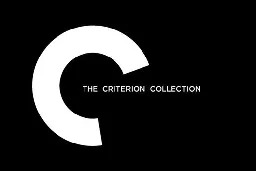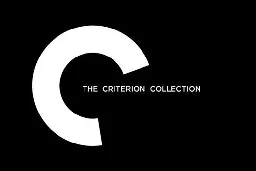I'm lucky enough to work for an organization which furnishes me with up to 4 hours of paid leave to vote. Plus, my polling place is on the road home, and I've never waited longer than a couple of minutes to vote. Finally, doing it in person feels more impactful, even if that's just a perception thing.
Many (but not all) private schools in the US are religious. From elementary school through college I attended Catholic affiliated schools. This sort of display would not be allowed at most public schools, and the ones that would allow it would be sued.
Jury's out on this one, but I'm told he's got top men working on it. 
Any playersof CoC willing to chime in on the key differences which push that game into a more investigative space than your typical DnD style dungeon crawl adventure? I mean, I assume there are things like a sanity mechanic, as well as an emphasis on player fragility, but I'm curious if there are other systems at play which separate the two RPGs even further.
I think you've got an admirably optimistic outlook. I hope you're correct. However, I am afraid that you may be underestimating human greed and selfishness. Those aren't unique traits to any generation. Maybe it's human nature, maybe it's learned through existence in a capitalistic / hierarchically organized society. In any case, I am not confident that youth alone will prevent people from seeing the kind of country and world that was left to them, as you put it, and not desire to possess as much of the remnants as possible in an outburst of self-interest.
For every person that sees the ice caps melting and wants to fix it somehow, I'm afraid there's almost certainly at least one other person who thinks, "Hell yeah, new oceanfront property just dropped, how can I own/sell it?"
Not that it really matters, but trying to learn about (Christian) God by reading the Old Testament is like trying to perform maintenance on your 2024 vehicle using a manual from the 2000 version of that car.. Like, yeah, that was relevant once, and there's some overlap, but the situation has evolved since then. It's called the Old Testament because it is based on something outdated (again, from a generically Christian perspective). The Old Covenant (which is what the Old Testament is testifying to) was between God and the Jews, and was based around compliance with the law. That's why the OT is so full of rules and punishments.
Then, Jesus arrives on the scene and changed the game. His birth, betrayal, and death, represent a new contract between God and humanity (not just the Jews) wherein mankind is saved by God's grace alone. In fact, God has done a 180 on the whole obedience to the law thing. Turns out, God loves sinners, and prostitutes, and tax collectors, and prodigal sons, and all sorts of ne'er-do-wells that the God of the Old Testament would have reviled. From the death of Jesus forward (and maybe retroactively too, I don't know dogma all that well), the only thing necessary for your salvation is God's grace, and that is given to all, as long as you accept God into your heart or something like that. Basically, God is Darth Vader, and he has altered the deal, pray he does not alter it further.
Of course, as with anything A) religious and B) 2000+ years old, there's a lot of disagreement on like every aspect of the above. But, I think I've got the gist of it correct from a generic, if Catholicism influenced, perspective. It's been a long time since I had to sit through a theology lecture.
With all that being said though, I imagine that the reason the OT has stuck around in Christianity is that it's characterization of God as vindictive and capricious and obsessed with toeing the line is a very useful tool for keeping the plebs compliant. They get to have their cake and eat it too, as it were. "God loves you unconditionally sweetie, remember that, but also if you have sex before marriage you are DAMNED to HELL for ETERNITY!"
Say what you will of the aesthetic being virtually insane, but personally, I think it's supa dupa fly.
TIL about the Sexo: La Novela meme. Delightful.
Great art as well. Love the collage style. Really captures a snippet of personality. Thanks for posting.
A game which I have started numerous times, and then bounced off of due to the archaic control interface. One of these days I'm going to have to knuckle under and learn how to interact with it, as the concept is cool as hell, and I'm sure the controls become intuitive with practice.
COULD be a big deal, assuming a lot of "ifs" wind up coming to pass. Nebraska awards it's electoral college votes on a piecemeal basis. Each of the 3 congressional districts gets 1 vote awarded to the winner of the popular vote in that district, and 2 "at-large" electoral votes are given to the overall winner of the statewide popular vote. This has only been relevant in two elections, 2008 and 2020, when the second district (which is basically just the Omaha metropolitan area) awarded 1 blue vote among a sea of red. Now, the state Republican party (no doubt assisted by national) did their damnedest to try and make things Winner Take All to prevent this situation from occurring again, but were unable to court the votes necessary in the legislature prior to time running out. In fact, all around town I see folks with signs in their yards with either a 🔵 to represent our district, or a silhouette of the state all in red, to represent the electoral voice of this district being silenced (probably not how they look at it, but my biases are what they are).
I'm too far removed from electoral news to understand exactly how this all shakes out, but there is a possible path to it being decided by a singular electoral college votes, and the influx of 100,000 potential voters with a possible (I'm speculating, but I don't think it's unreasonable) blue bias in primarily CD-1 and CD-2 could help secure that vote.
Cool picture! Looks like it would fit right into the Kenshin universe, if you're familiar with that game.
You are literally getting offended on someone's behalf at this very moment.
I imagine it's something of a difference in expected audience behavior. I would think that, for most people, looking at a few of the top comments and their replies is all the engagement with a post they want to have. So, a voting system facilitates that process by highlighting a few items the hive mind likes, and leaving the rest in relative obscurity. Whereas forum style posting sort of assumes that everyone present in a thread is in conversation with one another, hence chronological organization.
I am highly skeptical that anyone expected this to make it's budget back. Coppola financed it himself, and, apparently, marketed it himself. Honestly, were I in his position, I'd throw anyone seeking to provide "more oversight" off of my movie set. Not to say that that makes for better movies or anything, but when the artist provides the money, they get to oversee themselves for better or worse.
I see this response with some degree of frequency here on Lemmy (and Reddit before) when a movie/game bombs, or a show is cancelled, and I have to wonder how valid it is. Like, I would suspect that the population that uses Lemmy regularly and the population that takes steps to remove corporate advertising from their lives form an essentially circular Venn diagram.
At a certain point, easy though it is to blame marketers for not getting the word out, folks need to acknowledge the fact that, when advertisers come knocking at their door, they're turning off the porch light and closing the blinds.
Which is not to imply that people have anything approaching an obligation to open themselves up to advertising. I'm just saying that blaming a lack of ads while running an ad blocker seems disingenuous.
For the record, OP, not an attack on you or anything, just voicing some thoughts that have been percolating since reading about a couple high profile flops and cancellations this summer.
Gives me Bill Watterson vibes, like a previously unseen Spaceman Spiff comic from Calvin and Hobbes. Love it.
Continue to be thankful. I made some boneheaded choices in college which resulted in my throwing away a full ride, and I left school with like 80k in debt. Thankfully, I am much more fiscally responsible than I was academically responsible, and I managed to pay that off over the course of like 7 years (aided in no small part by the forbearance periods Biden forced through during COVID). Which is good, because more boneheaded choices were made which resulted in a significant change to my financial situation. If I were still making payments at this juncture, I would be in a position where I'd be moving back into mom's basement just to make ends meet.
Not that there is anything inherently shameful in that (it's fucking hard out here, and if that's a resource that you have available, it should not be turned away simply because of pride), but it does cause me to wake every morning pleased I didn't listen to any "financial gurus" out there who talk about shit like "good debt".
Perhaps. But expanding ones borders through conquest also seems medieval, and guided missiles are poor tools for holding territory, so the classics still have a role to play.
As neat and tidy as your explanation is, I think you are vastly oversimplifying the concept.
You say the moon is real because you can see it, and you can prove it's there by telling other people to just go look at it. Alrighty then, I've seen bigfoot. In fact, lots of people say they've seen bigfoot. Therefore he must exist too, right? The photos "prove" his existence just as much as you pointing to the sky saying the moon exists cause there it is.
Now, I realize that there's probably some degree of hyperbole in your statement, so I'll walk this back a little. If the defining metric of your separation between these concepts is whether the hypothesis can be proven through experimentation, that's all well and good. However, I would argue that, in 99.9% of cases, it's still a belief statement. Let's continue with the moon example, but, rather than "seeing is knowing", let's apply the same standard that you applied to God. So, you "know" the moon exists, not just because you can see it, but because it's existence can be empirically proven through experimentation. What sort of experiments would you conduct to do that, exactly? Have you done those experiments? Or, like the rest of the rational world, do you accept that scientists have done those experiments already and decided, yup, moon's there? Cause, if you're taking someone else's word for it, do you personally "know" what they are saying is true, or do you believe them based upon their credentials, the credentials of those who support the argument, and your own personal beliefs/knowledge?
As another example, let's imagine for a sec we're philosophers/scientists of the ancient world. I have a theory that the heavier something is, the faster it will fall. You may know where I'm going with this if you remember your elementary school science classes. I believe in the power of experimental evidence, and so, to test my theory, I climb to the top of the Acropolis and drop a feather and a rock. The feather falls much more slowly than the rock. Eureka, I've proved my theory and therefore I now KNOW that an object's weight affects its fall.
Now, anyone not born in 850 BC Athens in this thread will point out that it's a flawed experiment, since I'm not controlling for air resistance, and if you conducted the same experiment in a vacuum chamber, both objects would fall at the the same rate. However, the technology to test my hypothesis with all of the salient variables controlled did not exist at that time. So, even though it's now widely known that my experiment was flawed, it wouldn't have been at the time, and I would have the data to back up my theory. I could simply say try it yourself, it's a self-evident fact.
Finally, your statement about subjectivity of definition being an obstacle to functional language is so alarmist as to border on ridiculous. If this question were "how do you personally define the distinction between 'yes' and 'no'", then sure I can get on board a little bit more with your point. However this is much more like 'twilight' vs 'dusk'. Crack open a dictionary and you'll find that there is a stark, objective distinction between those terms, much as you pointed out that belief and knowledge have very different definitions. For the record, since I had to look it up to ensure I wasn't telling tales here, sunset is the moment the sun finishes crossing the horizon, twilight is the period between sunset and dusk when light is still in the sky but the sun is not, and dusk is the moment the sun is 18 degrees below the horizon. So, I know that these are unique terms with specific, mutually exclusive definitions. But let me tell you something, I believe that if I randomly substituted one term for another based purely on my personal whimsy, people are gonna get what I mean regardless.
Indian Paintbrush founder Steven Rales has purchased Criterion and Janus Films.

Cross posting for lack of a better term from !homevideo@feddit.uk for visibility.
I hope that this doesn't result in accelerated enshittification. I've been upgrading my home theater set up over time and I was finally ready to start building my collection of titles. Criterion factored heavily into my shopping list.
Indian Paintbrush founder Steven Rales has purchased Criterion and Janus Films.

It's time to roll the dice on new releases! Come check out this week’s batch of brand new tabletop role-playing games.

I hope this is allowed. Seems like a lot of books / content for a steal of a price.
Total War Warhammer 3 Steam forum boycotts are now banned, as Creative Assembly outlines moderation rules but is still open to criticism.

I haven't checked in on this game since around launch. Anyone want to bring me up to speed on what's happening? I gather the latest expansion pack is priced differently than prior DLC?
Also, that line about discussion being a privilege seems icky.